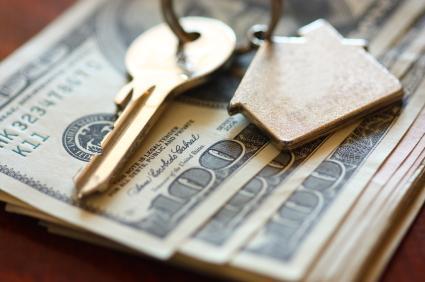What is a Security Deposit?
The Landlord and Tenant Relationships Act found in the Michigan Compiled Law defines a security deposit to include any deposit, including any required prepayment of rent, and any other sum required to be paid in excess of the average rent for the term, and any other amount of money returnable to the tenant if the rental unit is returned in the condition provided for in the lease agreement.
What is not considered a Security Deposit?
Non-refundable fees for cleaning or janitorial service are not considered security deposits and are not covered by the Landlord and Tenant Relationships Act.
How much is my landlord allowed to charge for a security deposit?
A security deposit cannot exceed 1½ times the monthly rent.
What must be included in the lease regarding the security deposit?
The security deposit clause in the lease must include the landlord’s name and address (must be provided within 14 days of the tenant assuming possession of the rental unit); the name and address of the bank holding the security deposit; and a notice (in 12 point boldface type) that you must notify your landlord in writing within 4 days after you move of a forwarding address where you will receive mail.
How can I document the condition of the rental unit when I moved in?
Upon moving in, the landlord must provide an inventory checklist so that you can document the condition of the rental unit upon move-in. You should complete the checklist and return a copy to the landlord within 7 days of moving in. (Keep a copy for your records!) Make sure that the inventory checklist is completed with as much detail as possible as it may be used by the landlord at the termination of your tenancy to assess damage to the property.
Under what circumstances can my landlord keep some or all of my security deposit?
A security deposit can be used to reimburse the landlord for actual damages to the rental unit that are a direct result of conduct not reasonably expected in the normal course of living in a rental unit. A security deposit can also be used to reimburse the landlord for unpaid utility bills and past due rent.
The landlord may not deduct from the security deposit for cleaning.
What is the timeline for the return of my security deposit after I vacate the rental unit?
- Within 4 days the tenant must notify the landlord in writing of a forwarding address indicating where to send the security deposit. (Keep a copy of this letter)
- Within 30 days of termination, the landlord must return the full security deposit or send the tenant an itemized list of damages along with any undisputed money. The notice must contain a statement advising the tenant to notify the landlord within 7 days if s/he disputes the landlord’s claims. If your landlord does not contact you within 30 days you are entitled to a return of your full security deposit.)
- Within 7 days of receiving the itemized list of damages, the tenant must respond to the landlord’s claim of damages in writing by regular mail.
- Within 45 days from the time the tenant has vacated the property, the landlord can sue to retain any disputed security deposit money. If the landlord fails to sue to retain the disputed security deposit, the tenant may be entitled to double the amount of the deposit withheld.
» Learn more about how to recover your security deposit in Small Claims Court.
The landlord does not need to sue to retain the money if:
- The tenant failed to provide a forwarding address; or
- The tenant did not respond to the damage letter; or
- The security deposit money retained is for any outstanding money judgments or rent due for a period of time the tenant was in possession; or
- The parties have agreed in writing regarding the disposition of the security deposit.
What can I do to make sure that I receive my full security deposit back after I move out of the rental unit?
Security deposits can only be withheld for damages beyond normal wear and tear, unpaid rent or unpaid utility bills. If you have not damaged the property, you should be entitled to a full return of your security deposit. The security deposit is your money!
Throughout your tenancy, you should document the conditions in your rental unit by completing (and keeping a copy of) the inventory checklist, taking pictures of the inside and outside of the property, and keeping copies of all communications with your landlord or management company including communication regarding the condition of the property and any needed repairs. You should keep a copy of your lease and all canceled rent checks. If there are several tenants occupying the same rental unit it would be helpful to designate one person in charge of maintaining the records.
When you are ready to move out make sure that you return your keys, remove all of your property from the rental unit, clean the property and take pictures to document the condition of the property at move out.

